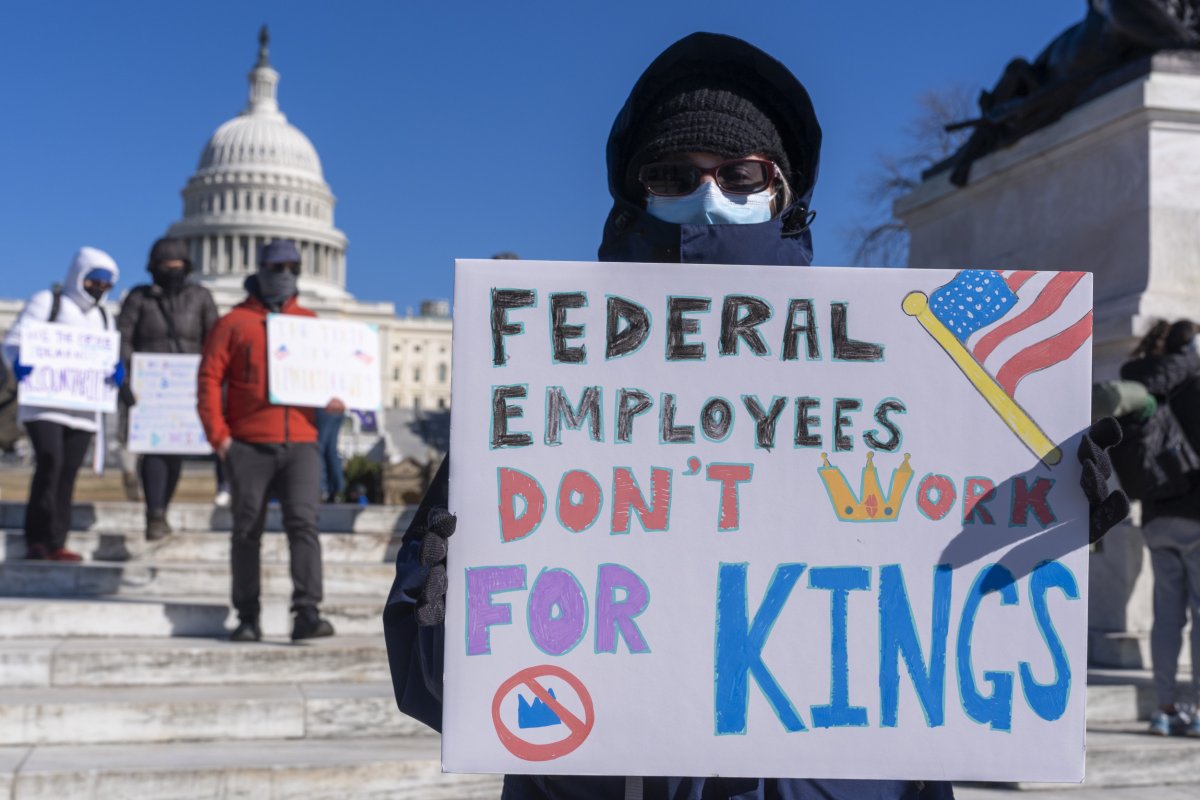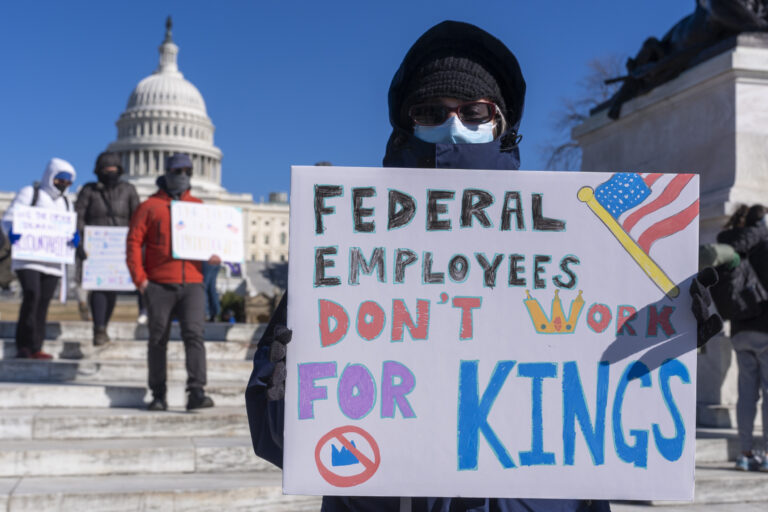In a major victory for the Donald Trump administration, a federal appeals court ruled Monday, that 19 mostly Democratic-led states and Washington, D.C., could not pursue their lawsuit challenging the dismissal of nearly 25,000 recently hired federal employees.
The Fourth U.S. Circuit Court of Appeals, in a 2-1 decision, held that the states lacked standing to sue over the February terminations.
Newsweek contacted the Maryland Office of the Attorney General, the lead plaintiff, for comment via email outside of normal business hours on Tuesday.
Why It Matters
The court’s decision is significant because it limits the ability of states to challenge federal workforce actions, strengthens President Trump’s authority over government employment, and leaves thousands of probationary workers with few immediate legal remedies.
Supporters say the ruling validates efforts to trim what they see as bureaucratic excess, while critics argue it allows the administration to bypass legal safeguards designed to protect both workers and state governments from the fallout of mass layoffs.

Jacquelyn Martin/AP
What To Know
The ruling vacates a lower court injunction that had temporarily reinstated thousands of probationary workers.
The Richmond-based panel determined the plaintiffs failed to demonstrate they suffered direct, redressable injuries from the firings.
Writing for the majority, Judge J. Harvie Wilkinson, who was appointed by Ronald Reagan in the 80s, said the case “must ultimately be resolved by the voters,” not by judicial intervention.
“While some saw the terminations as harsh, others saw them as warranted to trim the bloat of the federal bureaucracy,” Wilkinson wrote.
He was joined by Judge Allison Jones Rushing, appointed by Trump during his first term.
Judge DeAndrea Gist Benjamin, who was appointed by Joe Biden, dissented. She argued that the majority overlooked concrete harms to state governments, including the surge in unemployment claims and increased administrative costs linked to the firings.
“Because I will not endorse the Government’s attempt to circumvent our Nation’s laws, I respectfully dissent,” she wrote.
Background to the Case
The case originated in March, when the states and D.C. sued after federal agencies terminated tens of thousands of probationary employees.
The plaintiffs alleged the administration violated federal law requiring 60 days’ notice to state and local governments ahead of mass layoffs. They argued the lack of notice deprived them of time to prepare for the influx of unemployment insurance claims and related budgetary impacts.
U.S. District Judge James Bredar initially ordered agencies to reinstate more than 24,000 workers nationwide, later narrowing his ruling to the states that filed the lawsuit.
The Fourth Circuit stayed that injunction in April before overturning it outright on Monday.
In its opinion, the majority said the states were not the proper parties to bring the suit. “The real and direct harms were suffered not by the states, but by the terminated probationary employees, none of whom are even parties to this suit,” Wilkinson wrote.
The court stressed that challenges to such terminations are governed by the Civil Service Reform Act and must be brought through that system.
Agencies Affected
The agencies affected by the firings included the departments of Agriculture, Commerce, Education, Energy, Health and Human Services, Homeland Security, Housing and Urban Development, Interior, Labor, Transportation, Treasury and Veterans Affairs.
Probationary employees typically have less than one year in their roles and fewer workplace protections, though some of those dismissed had longer federal service in different positions.
What People Are Saying
White House spokesperson Abigail Jackson said on Monday, per Reuters: “Yet another win for the Trump administration affirming the president’s lawful actions and dismissing the unlawful ruling by a lower court judge.”
What Happens Next
Maryland and other states may seek further review from the full Fourth Circuit or the Supreme Court, though their standing arguments face steep challenges, while federal employee unions are pursuing a separate case in California that could keep the issue alive in the courts.
For now, the near 25,000 probationary workers remain out of their jobs, with limited options beyond a backlogged civil service appeals system.


